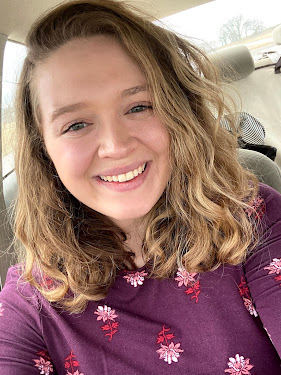To combat this, I try to schedule at least a half hour to an hour in my day every day to be able to be by myself. Obviously, some days I don't get this time and some days the only time I get is spent cooking lunch, watching Gossip Girl, or listening to the podcast Small Town Murder while walking to class. Scheduling those little moments for myself to recharge gives me something to look forward to when I am stressed or overwhelmed. It also helps prevent feeling stressed or overwhelmed knowing I have some buffer time within my day.
With that being said, though, that isn't the main focus of why I'm writing this. We (or maybe just me) constantly fall into this cycle of being "too busy" to change our habits. We may think about changing or talk about changing but we don't follow through on implementing what we say.
 |
| Here's a cute Girl Scout photo from the "Teddy Bear Tea" in fall 2018. |
In Kappa Delta, each chapter is assigned a division based on chapter size and location. Each division has a chapter services coordinator and other nationals staff members to support councils. Every two years they come on a "national visit" to chapters. This Sunday the division seven chapter services coordinator, Teresa, came to visit our KD chapter. It was so nice to meet her in person after having lots of phone calls and email exchanges. She's seriously incredible and so inspiring.
Something I took from her workshop that applies way beyond Kappa Delta is reminding ourselves of our mindsets when doing things. If you go into chapter events, work, or hanging out with friends with an "I have to do this" attitude, it isn't going to be so great. If you go into your work day or dinner plans thinking of the positive things that could come from them or what you could learn, it's much more likely to be a meaningful experience. It can be hard, especially if people feel complacent in their day-to-day activities. Every once and a while check in with yourself (especially if you catch yourself thinking about the negatives) and think about why what you're doing is making a difference in your life. It may be a difficult season and you may not know the "why" currently, but think back to why you took that job or joined that club and try to re-spark that passion.
I am so thankful to have such a great chapter services coordinator who has truly invested in me and the Alpha Psi chapter.
Until next time,
Taylor
Taylor


